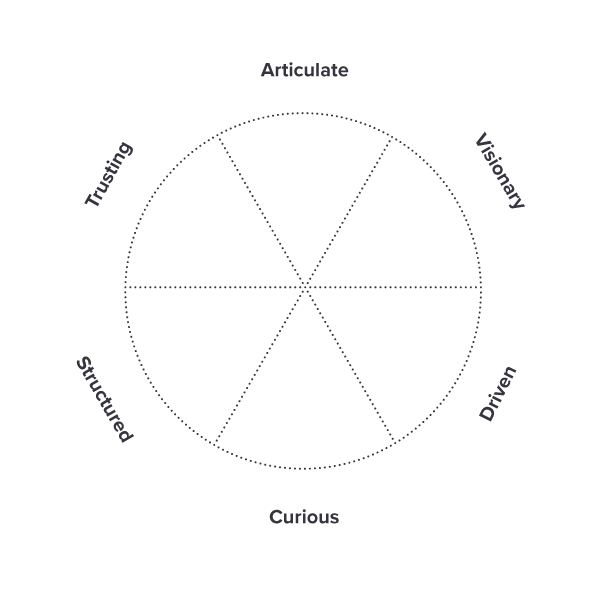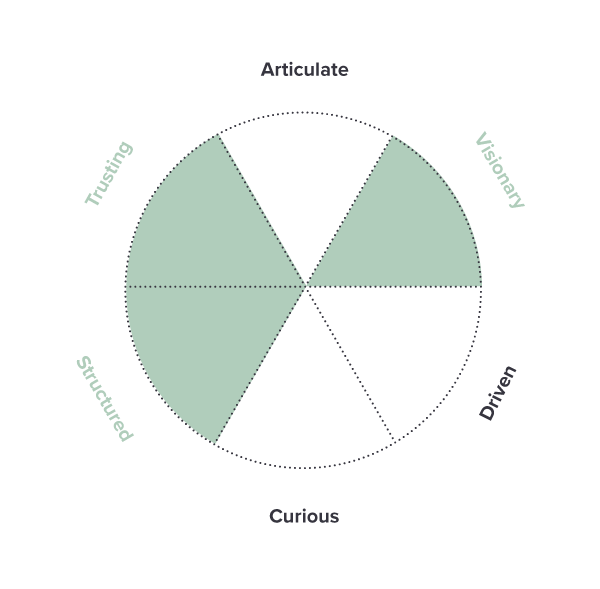The role of the product manager is defined in various ways across industries. But there are common threads which run through all effective product managers. It doesn’t matter if you are working at an enterprise or a startup — there is a fundamental core of competencies and skills. However, enterprise companies and startups are indeed very different beasts. The culture, people, resources and products all make a huge difference. It comes down to more than board shorts vs. board room.
At this stage, it’s worth saying that it’s not black-and-white. Each of these two types of businesses includes myriad variations. This article seeks to draw broad distinctions. These can be used as a guide for aspiring product managers looking for their first role, experienced product managers looking for their next move, and leaders who are looking to hire the right profile to fit their business.
First, we’ll take a look at the core dimensions of the product management role. Then we’ll take a look at five key differences between working at enterprise and startup companies. From this, we’ll be able to see how the core dimensions flex depending on the environment.
What is the core of any product manager’s role?
Straight off the bat, it’s important to understand that attitude is just as important as any hard or soft skill. Yes, you need to be able to write requirements, run effective workshops, and grasp technology and design, but there’s much more to it than that. Product management is more of a mindset than a job. This is why product managers seem to come from all kinds of different backgrounds. It lends itself to anyone who has the right way of looking at the world:
“Passionately curious to find the right answer with a team.”
Here’s how that product management mindset breaks down into six core dimensions.
- Trusting: lets others get on with work in their area of expertise; steps in only if and when needed.
- Articulate: able to manage diverse stakeholders, lead a constructive debate, and see both sides of an argument.
- Visionary: acts as the leader of an idea and rallies people behind it; focused on the long-term and the big picture.
- Structured: maintains a critical view of processes and is ready to define new ways of working and refine existing ones; highly organized
- Curious: solves problems using evidence and gets to the right answer quickly; questions the status quo but leaves ego at the door.
- Driven: a self-starter who drives their own workload and takes the initiative to challenge themselves and others.
Each of these dimensions is just as important as the last. I’m deliberately not going to dive into the skills and experience required here, because that varies wildly by industry, team, and product. Some product managers will need to be more customer-focused, others will be more technical, and still others will need to be very commercial. However, a product manager’s attitude is foundational.
Enterprises vs. startups
Enterprise companies have been around the block and the have steady revenue and established brand to prove it. The main challenge comes from what makes them strong: their history. They can be crudely characterized as:
- Risk-averse
- Established
- Slow-to-move
In contrast, startups are companies in their very early phases of operations. Change is the only constant and they are in a race to figure out why they exist before their money runs out. In general, startups are:
- Risk-taking
- Unestablished
- Fast-to-move
Here are the most important factors in determining how the product manager’s role varies between enterprises and startups.
Stakeholders
Large companies have far more stakeholders. This is because they have more business value to protect. Startups don’t typically have many stakeholders because there’s not much to lose. At an enterprise, roles are clearly defined, so it’s easy to find the stakeholder who can help you fix a problem. At a startup, this is a little more tricky as roles and responsibilities have blurry edges. So, though you will have fewer stakeholders, you will certainly need to work harder to find out who can help you and who you need to keep happy.
The challenge in an enterprise is how to retain autonomy over decisions and direction. The converse is true in a startup. The lack of stakeholder input can lead to analysis paralysis. This makes having a clear vision and sticking to it very important.
Influence and control
Enterprises not only have well-defined roles but also an established view of how business is done. These factors can lead to fewer opportunities for influence, change, and innovation. Ultimately, it comes down to risk: if it ain’t broke, don’t fix it. The C-level execs have shareholders and reputation to protect, so if you walk into the boardroom with an idea to revolutionize the business, it will need to be near zero-risk.
Contrast this with startup life. where there is far less to lose and therefore change and innovation are welcomed by leadership, who encourage bold decisions. Walk into the boardroom with the same idea and, although the due diligence will have to be done, you’re far more likely to be able to run with it.
Having more influence and control is great for job satisfaction when things are going well; you can see the impact you’re having. However, it can be a major source of stress and anxiety as you feel the weight of the world on your shoulders. So maybe it’s better to be protected when the stakes are high.
Structure
Large companies have far more structure. At startups, you’d be better off looking for hen’s teeth than structure. Not only does this mean that you can experiment with products and services, but it also means you have more flexibility to define processes and create structure. This is a great opportunity to put your stamp on the fundamental operations.
The flip side at an enterprise is, of course, you have the tools and processes ready to go (most of the time), so you can focus on producing excellent work, rather than figuring out how you’re going to do excellent work (and finding time to do it). You’re probably going to spend more time problem-solving at a startup than at an enterprise. Furthermore, you’ll probably need to do it largely on your own because everyone is just as busy are you are.
Breadth
At enterprises, you are more likely to have a narrower focus with more depth in that area, whereas at a startup it’s likely that you will be covering more breadth. This means that at enterprises, you can really start to master a skill. That’s not to say that this is impossible at a startup, but you are more likely to develop a more generalist skillset. At very early startups, don’t be surprised if you need both depth and breadth, leading to a very heavy workload.
Of course, the product manager position is already a generalist role. But at a startup, you may find yourself being pulled into tasks that aren’t high on your list of priorities. If you’re really sure what you want to focus on, then an enterprise can be a great option. But if you’re looking to explore different variations of roles, then a startup can help you gain visibility of that quickly.
Politics
The increased visibility, influence, and control which everyone has in a startup often leads to meritocracies. Your work — both good and bad — is there for all to see. This means that you are likely to be fairly rewarded and recognized for the work that you do. However, it also means that if you slip up, you are most definitely in the firing line. At enterprises, longevity and experience carry a lot of weight, as they come with deep subject matter knowledge and greater emotional investment in the brand. Given that enterprises are risk-averse, people with deeper knowledge and experience sit in a strong position for progression as they are more valuable to retain.
Does this make it easier to progress at a startup? Not necessarily, because startups have less structure. But no matter where you’re employed, “work hard and be nice” is a good rule to follow.
What does all this mean for product managers?
Let’s come back to the six dimensions previously identified and see how they flex up and down for enterprise and startup product managers.
Enterprise product managers have to over-index on the following three of the six core dimensions:
Articulate
You have many stakeholders, and for a lot of the discussions, your team is at the business end of the decision-making. So it’s incredibly important that you lead constructive debates and see both sides of an argument.
Curious
One of the biggest challenges you’ll likely face is a lack of innovation and a reliance on the established way of doing things. That’s why you need to drive curiosity across the whole team to understand how to create new value.
Driven
For similar reasons, you’re going to have to work really hard to make a difference and put your stamp on things. There is more red-tape and protocol, which can be disheartening. But it’s there for a reason, so use it to your advantage.
Why not the other three? Well, remember that all product managers need to be doing all six of the dimensions outlined. It’s just that, due to the specific challenges and opportunities of enterprise businesses, these dimensions are more critical to success.
On the other hand, startup product managers have to over-index on the following three of the six core dimensions:
Trusting
You don’t have time to do everything. You need to let experts get on with what they are brilliant at and be as supportive and trusting as possible. You believe that the power of the group is greater than the sum of the individuals.
Visionary
The idea you’re working on is brand new. Maybe there’s no precedent for it in the market, or maybe you have a huge incumbent to de-throne. Either way, to keep the team motivated, you need to stay focused on the long-term.
Structured
Every day, you will be working with ambiguity and the unknown. To tackle this. you need to add structure. Without this, decisions will migrate from reason and evidence to dogma and opinion.
Surely startup product managers need to be incredibly driven? Absolutely, but the sheer pace and energy of the environment will be driving you plenty. If anything, startup product managers will need to focus more on slowing down and regaining perspective on the long-term vision.
Key takeaways
- It doesn’t matter if you are working at an enterprise or a startup — there is a fundamental core of competencies and skills.
- Attitude is just as important as any hard or soft skill. Product management is a mindset more than it is a job.
- This attitude can be distilled as: “Passionately curious to find the right answer with a team.”
- Enterprises are risk-averse, established, and slow-to-move. Startups are risk-taking, unestablished, and fast-to-move.
- There are six core dimensions to any product manager role: trusting, articulate, visionary, structured, curious, and driven.
- There are five important factors that dictate the main differences in the product manager role in enterprise and startups. These are stakeholders, influence and control, structure, breadth, and politics.
- Because of these factors, enterprise product managers have to over-index in the dimensions of articulate, curious, and driven.
- Startup product managers have to over-index in the dimensions of trusting, visionary, and structured.












